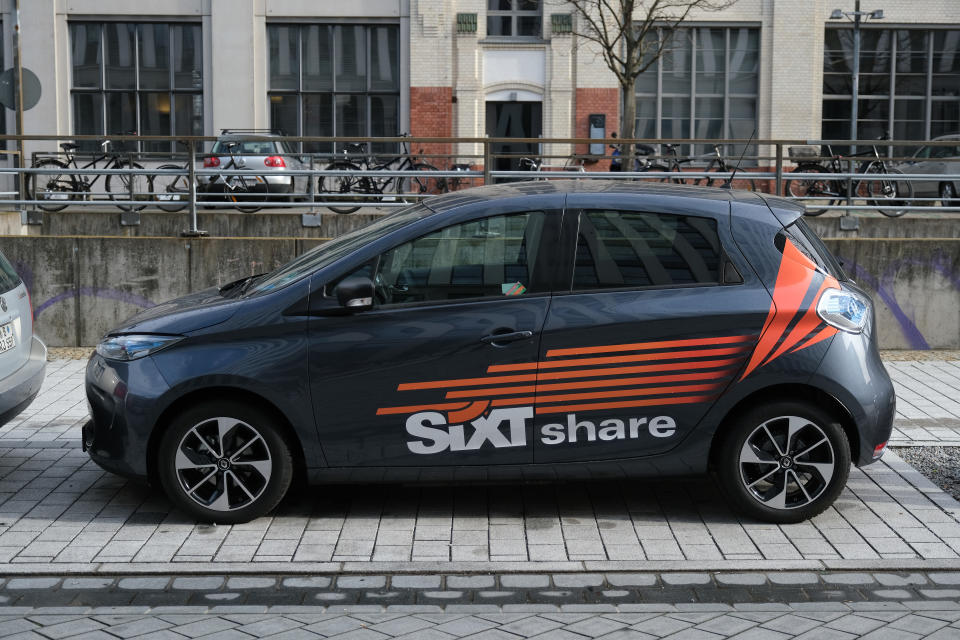Germany’s largest car rental doubles profits, takes aim at car-sharing market

High demand for rental cars and the sale of its DriveNow stake helped German car rental giant Sixt more than double annual profits to €439m (£376m, $498m) in 2018 from the year before on sales of €2.9bn (£2.5bn, $3.3bn). That marks the fifth record year in a row and the most successful in its history, Sixt said.
The company said that it expects to keep expanding globally. After launching in the US in 2011, Sixt is now in fourth place in the world’s biggest car-rental market, with sales up by nearly 19% last year and seven new locations added to its network.
Sixt’s performance in 2018 was also bolstered by the sale of its 50% stake in car-sharing business DriveNow to its partner BMW for €209m (£184m, $259m) at the beginning of the year.
BMW announced last month that DriveNow would merge with Daimler’s Car2Go sharing platform. BMW (BMW.DE) and Daimler (DAI.DE) are investing €1bn (£870m, $1.1bn) on the joint venture to challenge the likes of Uber.
READ MORE: Daimler and BMW invest €1bn into joint venture to challenge Uber’s dominance
Now, just a little over a year after getting rid of DriveNow, Sixt is getting back into carsharing and going up against its former partner BMW. Last month Sixt started rolling out an app-based mobility platform for its 20 million customers.
“As a market leader with approximately 240,000 vehicles worldwide, we have built up a strong customer base,” Sixt chief strategy officer Alexander Sixt said.
“Now, with our new mobility platform ‘ONE’ … we are bringing together things that belong together and are combining car rental, car sharing, and ride-hailing/taxi into the world’s first and fully integrated mobility platform.”
Sixt, Germany’s first car rental company, was founded in Munich by Martin Sixt in 1912. It is still majority owned by the family.

 Yahoo Sports
Yahoo Sports 